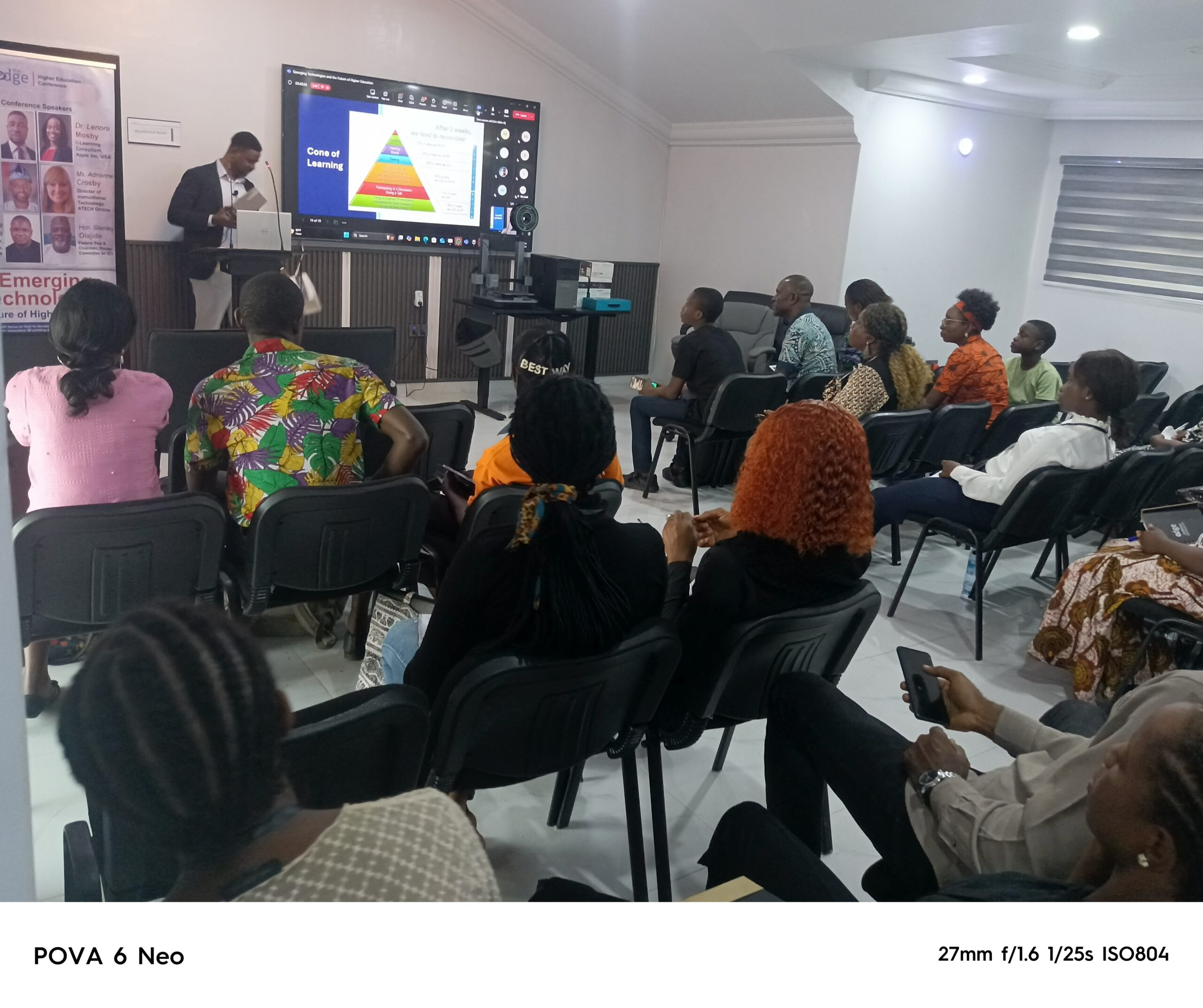A United States-trained Information Technology expert, Dr. David Seyi Akanbi, has called for increased investment in technology-driven research to enhance society and address the demands of a rapidly changing world.
Dr. Akanbi, an adjunct professor at the University of the District of Columbia, Washington DC, made this assertion during his presentation titled “Emerging Technology and Teaching in Higher Education” at the EDGE Conference held at the proposed American Open University of Technology Ibadan at the weekend.
The IT expert emphasized that investments in higher education must yield tangible results, such as skilled graduates and innovative solutions. “It’s not just about injecting money; accountability and results matter. Improved quality in education will encourage further investments and build public trust,” he stated.
Dr. Akanbi identified a mismatch between academic curricula and labor market demands as a significant contributor to unemployment in Nigeria. He noted that the conference aimed to address these challenges by equipping students with employability skills and ensuring that educators are adequately trained.
“Our goal is to prepare students for the workforce while also enabling educators to train future-ready graduates. These efforts not only benefit individuals but also enhance the economy by creating skilled professionals who contribute to national development,” Akanbi explained.
Highlighting the transformative potential of artificial intelligence (AI) and other innovations, Akanbi urged stakeholders in higher education to embrace emerging technologies. “AI-focused training programs are being introduced to bridge the knowledge gap. These initiatives foster learning and equip participants with insights needed to prepare graduates for future challenges,” he said.
He added that awareness campaigns and practical applications of emerging technologies could inspire their widespread adoption in educational institutions.
Reacting to the TETFund’s recent decision to limit foreign training for lecturers, Dr. Akanbi suggested strategies to address brain drain while maintaining exposure to global standards. “The government should fund training abroad but ensure that beneficiaries return to contribute to the system. Collateral agreements could help enforce this,” he recommended.
Professor Francis Eghokare, President of the Open, Distance, and e-Learning Association, also presented at the event. He stressed the need for regulatory policies in higher education to adapt to current realities.
“The rate of degradation in the system outpaces improvement. Urgent measures must be taken to increase the scale of progress and adaptation,” Eghokare warned.
Participants, including Ooreoluwa Aladejuyigbe and Bayo Agoola, highlighted the importance of the training for human capital development. They noted that the conference provided critical analyses of challenges in Nigeria’s higher education sector and strategies to address them through technology.
Aladejuyigbe, a media practitioner and researcher, shared her perspective: “As a journalist, I plan to adopt the lessons from this training to enhance news gathering, presentation, and other aspects of my work.”
The conference underscored the pivotal role of technology in shaping the future of education and society, calling on stakeholders to prioritize investment, training, and innovation for sustainable development.













